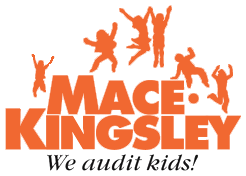Today I would like to write about something that, while it’s the basis of a lot of comedy, is also the distress of a lot of adults/parents. It is something that comes up frequently. It is the need for awareness and understanding of how confusing the English language is, especially for a young child.
As adults we talk around our children all the time, we assume that to a great degree they will “get” what we are saying to them (or around them) based on the context of what we are saying, our facial expressions, and the intonation of our voices. But in fact, the majority of the words in the English language have many different definitions. Then there are idioms and phrases and colloquialisms that make communication a truly tricky business. In fact I have often wondered if the only reason we truly understand anyone is a matter more of telepathy than the words sent and received.
For children this presents a particular problem. Children often tend to listen and take communication literally. Parents not understanding this often mistake the child’s confusions for non-compliance, disobedience, lack of caring and disrespect.
Let me give you some graphic examples of this:
Many years ago a friend of mine had a 6 yr old son who was often sent to the principal’s office for behavioral problems. The parents finally found the source of the problem and got this corrected. However, after his many chats with the principal the young boy felt he had found a friend and would sometimes go to his friend’s office to chat. The principal usually allowed this as he had become fond of the boy. Then one day after 7 months of good behavior the boy’s parents got called into the school as the boy was throwing a tantrum and causing a ruckus. To make this story shorter, I will cut to the chase here.
The boy’s upset turned out to be that on this particular day when he went to visit his friend, the principal looked up from his paperwork and said, “I can’t see you now,” and sent the boy on his way.
After much discussion and string pulling the boy blurted out, “But he was lying! He said he could not see me and he was looking right at me!”
Another source of concern for some parents is a child who wets. On one particular occasion I checked for all the normal things: Does the child have difficulty getting his/her pants down in time? Is the potty in question too tall or scary in some way? Does the flushing frighten the child? Can the child find the bathroom easily? Can the child turn the light on easily? Has the child been trained to wipe properly etc. In cases of potty difficulties it can be any or all of these. But in some cases (especially girls and women) there is an issue with muscle control. So my question was: “What happens when you have to go to the bathroom and you ask to go?” And the child’s answer was that most times she was allowed to go but sometimes she is asked to hold it. So I asked what did that mean and the answer very sweetly was, “I don’t know.”
In this case I explained to her there was an exercise she could do and that I would get her mom to help her with it. The mom was called and told about a well-known exercise that women are often referred to in order to help strengthen a weak muscle that can cause leakage.
In each of the cases above you can see it was the literalness of the language that was causing confusion for the child, but the adults didn’t catch it. They became upset, sometimes disciplined the child, much to the dismay of the child. So just on the off chance that things said around the child might not have been fully understood, here is my suggestion: when you say things to your child and they are blatantly not complying and this is becoming a source of trouble in your worlds, before you do anything else please stop a minute to have a conversation with your child. Find out their understanding of what you are asking them to do. If you are absolutely certain that they have a clear understanding of what you have asked, then fine – go to the next level of giving them more data, discipline, rewards and penalties, whatever is needed. However, if you find that there is an obvious misunderstanding or no understanding at all, of course patiently and honestly handle the confusion.
At Mace-Kingsley we are well trained in working with children and families. We are here to help you. If you find yourself beside yourself when dealing with your children (of any age), please do contact us at 727-442-3922.
